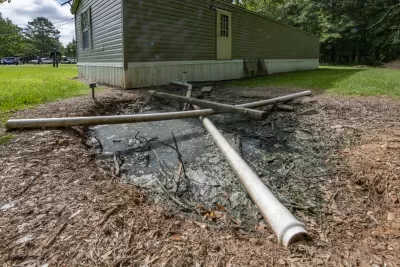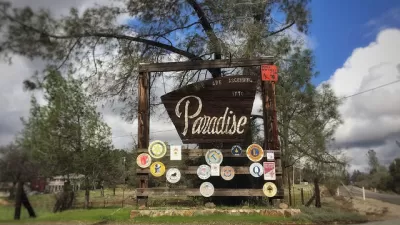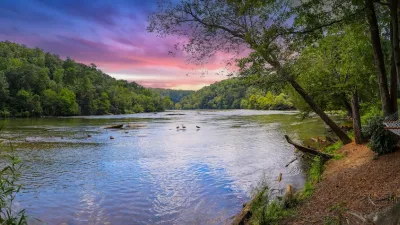Newly announced federal funding will help resolve the decades’ long sewer crisis faced by rural majority-Black communities in Alabama and Mississippi.

This week the Federal Environmental Protection Agency (EPA) announced funding that will help address years of neglect of wastewater infrastructure in the Black Belt, “a crescent of rural, majority-Black communities stretching from eastern Texas to southern Virginia,” reports Willy Blackmore in an article for Word in Black.
The funding, part of the Biden Administration's Closing the Water Access Gap, will go toward creating or upgrading sewers, drainage, and septic systems in 150 rural U.S. communities, including several mostly-Black enclaves in Alabama and Mississippi. It represents an expansion of a successful pilot program in Lowndes County, Alabama — “a majority-Black, low-income community where residents lacked access to the kind of municipal water infrastructure that most people take for granted,” Blackmore writes.
Lack of investment in water and sewer systems has been a critical issue in the Black Belt for decades, even prompting a federal civil rights investigation. A Columbia University study estimates that 90 percent of septic systems in Alabama’s Black Belt are functioning poorly or not at all, largely because of the region’s heavy poor-draining clay soil, causing waste to back up into houses during heavy rains. According to an article in Southern Science, an estimated 50 percent of homes in that region have raw sewage on the ground due to inadequate or failing treatment systems.
“In expanding the program to 150 additional communities, we are working to restore dignity and opportunity to underserved communities nationwide,” Radhika Fox, the EPA’s assistant administrator for water, said in a statement.
FULL STORY: Feds Are Finally Taking Action on Alabama’s Black Belt Sewer Crisis

Alabama: Trump Terminates Settlements for Black Communities Harmed By Raw Sewage
Trump deemed the landmark civil rights agreement “illegal DEI and environmental justice policy.”

Planetizen Federal Action Tracker
A weekly monitor of how Trump’s orders and actions are impacting planners and planning in America.

Why Should We Subsidize Public Transportation?
Many public transit agencies face financial stress due to rising costs, declining fare revenue, and declining subsidies. Transit advocates must provide a strong business case for increasing public transit funding.

Understanding Road Diets
An explainer from Momentum highlights the advantages of reducing vehicle lanes in favor of more bike, transit, and pedestrian infrastructure.

New California Law Regulates Warehouse Pollution
A new law tightens building and emissions regulations for large distribution warehouses to mitigate air pollution and traffic in surrounding communities.

Phoenix Announces Opening Date for Light Rail Extension
The South Central extension will connect South Phoenix to downtown and other major hubs starting on June 7.
Urban Design for Planners 1: Software Tools
This six-course series explores essential urban design concepts using open source software and equips planners with the tools they need to participate fully in the urban design process.
Planning for Universal Design
Learn the tools for implementing Universal Design in planning regulations.
Caltrans
Smith Gee Studio
Institute for Housing and Urban Development Studies (IHS)
City of Grandview
Harvard GSD Executive Education
Toledo-Lucas County Plan Commissions
Salt Lake City
NYU Wagner Graduate School of Public Service





























